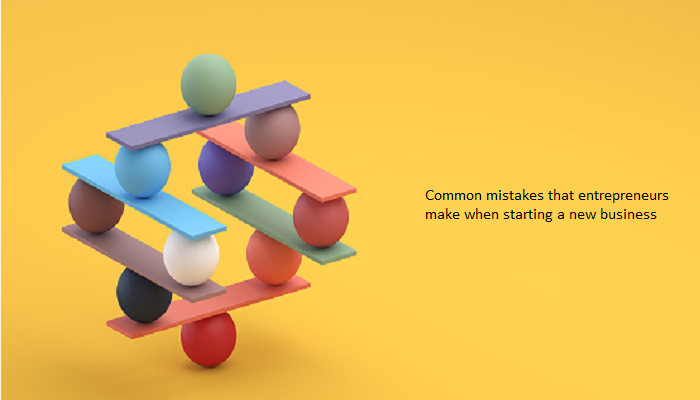Introduction
When you're launching a new business, it's easy to get caught up
in the details of what you need and how many people will work on your project.
But if you want your new venture to succeed, it's important to remember that
the most important thing is building something amazing—and then letting go. In
this post, we'll go over some common mistakes that entrepreneurs make when
starting their own companies:
Thinking of your business as a product.
When you think of your business as a product, it can be easy to
get caught up in the weeds of the minutiae. But if you take a step back and
think about what exactly makes something like your company unique or special,
then it's less likely that you'll make these mistakes:
- You need a clear vision for what your product will be before jumping into development or marketing. You should also have one for how customers use those products—and even who they are!
- The best way to achieve this vision is by writing down all possible variations on things like pricing and features so that nothing gets left out (or forgotten).
Not knowing who your buyer is.
- Know who your buyer is.
- Understand what they need.
- Understand how to reach them.
- Understand what they value in a product or service, and how much it will cost them to buy it from you (if the answer isn't obvious, ask).
Spread yourself too thin.
If you’re planning on starting a business, it’s important to focus
on one or two things at a time. This means that not everything is equally
important and urgent. It also means that you can’t do everything yourself—if
something takes too much of your time and energy, then it isn't worth doing!
Most people don't have the ability or resources to do everything
themselves; some things will require outside help from friends or family
members who have experience in those fields (like marketing). But even then,
don't spread yourself too thin! You need only focus on what's most important
right now and leave the rest until later when there are fewer distractions
around (and hopefully more cash flow).
Keeping your strategy in your head.
Keeping your strategy in your head is a
recipe for disaster. A plan is only as good as its ability to be communicated,
and if you're the only person who knows how the business works, it's all but
useless. You need other people on your team who have been through this
before—and they should be able to communicate their experience with others
outside of the company so that everyone feels welcome and included in the
process.
In addition to keeping written documentation around (something
like Microsoft Excel or Google Drive), we recommend using a planning tool like
Trello or Asana; these tools allow you to keep track of tasks and projects at
once while allowing others access when needed. This way, everyone has access
when needed and doesn't have time staring at spreadsheets all day long trying
to figure out where everything fits together!
Not talking to customers.
- Talk to customers.
- Get feedback on your idea.
- Understand what customers want and need, how they use your product or service, and how they feel about it.
Getting hung up on perfection.
When you're starting a new business, you may be tempted to spend
too much time on perfection. You might want everything that can go wrong to go
wrong, and then fix it as soon as possible. This is a mistake! The best
entrepreneurs are those who know how to focus on the big picture and ignore the
small stuff—especially when it comes to their products or services.
You should also try not to get hung up on details: if something
seems like it's taking too long or costing too much money, then consider
abandoning it altogether. You'll end up saving yourself lots of time down the
road when you don't have any additional headaches because they weren't worth
pursuing in the first place!
Thinking you’re done after the MVP is built.
Once you have finished developing your MVP from a MVP
development company, you should test it as often as
possible. This is the best way to find out if your product or service is
actually useful and needs improvement.
The key here is to not get stuck on the first version of your
product or service, but rather start with an idea that may or may not work in
order to see what else can be done with it. If you think about how many people
use Facebook every day (or even just check their account), then there are
probably millions of people who use Messenger every day—and yet no one uses
Snapchat! Why? Because users don't want something new when they already have
everything else!
Any business can get off the ground by
starting small and focusing on building the right things at the right time, and
avoiding these common mistakes can help you do that successfully.
You don't need a lot of money or time to start a business—just
take some time to think about what you want to do and how much money it will
cost before launching into action!
Conclusion
We hope this post was helpful, and that we’ve given you some ideas for how to avoid these mistakes when starting your own business. We know it can be scary, but with a little preparation, you can avoid making these common mistakes and get off the ground running!










